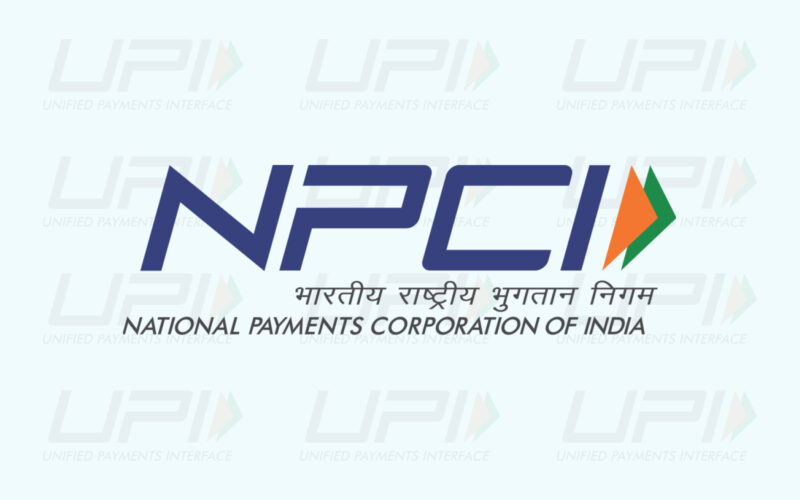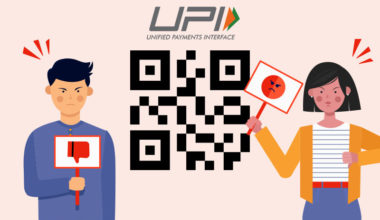The successful operation of a Unified Payments Interface (UPI) is the direct result of roles and responsibilities discharged by its members, namely NPCI, PSP, and TPAP. The National Payments Corporation of India, or NPCI, is the owner and operator of UPI, which ensures the safe and efficient working of the UPI system. PSP (Payment Service Provider) ensures that the UPI app complies with all safety measures, while TPAP (Third Party Application Provider) works as a service provider and participant in UPI via PSP banks.
All these three major members play different roles in ensuring the seamless working of UPI in India. It is essential to comprehend the roles of each UPI member to gain a thorough understanding of the functioning of the UPI app. In this article, we are going to break down all the roles and responsibilities of NPCI, PSP, and TPAP in the smooth working of the UPI. But before getting insights into the roles and responsibilities of UPI members, let us first understand what UPI is.
What is UPI?
Unified Payments Interface (UPI) is a real-time payment system developed by NPCI with an aim to bring financial inclusivity to the Indian economy. UPI facilitates the online transfer of funds across different banks using a single mobile application.
The UPI payments are made using UPI ID, QR code, inter-bank transfer, or mobile number. Some major participants in UPI may include payer PSP, payee PSP, remitter bank, NPCI, beneficiary bank, bank account holders and merchants. Every participant in UPI, directly or indirectly, contributes to its smooth functioning across every payment gateway.
Roles and Responsibilities of NPCI in UPI
From operating UPI to routing online transactions, NPCI plays a huge role in shaping the UPI payment system in India. Here is what NPCI does:
- NPCI owns and administers the Unified Payments Interface platform.
- NPCI establishes UPI’s rules, guidelines, and regulations, defining the roles, responsibilities, and liabilities of Payment Service Providers, Third Party Application Providers, and other participants. This includes managing dispute resolution, transaction processing and settlement, and clearing cut-offs for appropriate settlement.
- NPCI permits the participation of PSPs, customer banks, Prepaid Payment Instruments (PPIs), and TPAPs in the UPI ecosystem.
- NPCI ensures the provision of a secure, efficient, and reliable UPI system and network.
- NPCI offers online transaction processing, routing, and settlement services to all members involved in operating UPI.
- NPCI has the authority to conduct audits on UPI participants, either directly or through third parties, and can request data, information, and records related to their involvement in UPI.
- NPCI provides PSPs with system access, enabling them to download reports, initiate chargebacks, and update the status of UPI payments.
Roles and Responsibilities of PSP in UPI
Payment service providers in UPI are the intermediaries that provide payment services to users via the UPI platform. Here are the roles that PSPs play in UPI:
- PSP is a banking platform. It connects to the UPI platform to offer UPI payment services to itself and TPAPs, enabling users and merchants to complete transactions.
- PSP, either via its own or a TPAP’s app, registers and onboards users onto UPI. They link their funding accounts to their appropriate UPI IDs.
- PSP is accountable for authenticating users during registration, whether through its own app or a TPAP app.
- PSP connects with TPAPs to onboard them to make their devised UPI app available to extended users.
- PSP is responsible for ensuring the adequate security of TPAPs and their systems for UPI operations.
- PSP is responsible for auditing TPAPs’ UPI-compliant applications and systems to maintain the security and integrity of user data, including UPI transaction data and UPI app security.
- PSP stores all payment data, including UPI transaction data, collected for facilitating UPI transactions within India.
- PSP allows UPI customers to choose any bank account from the available list of customer banks on the UPI platform to link with their UPI ID.
- PSPs establish a grievance redressal mechanism to address and resolve user complaints and disputes.
Roles and Responsibilities of TPAP in UPI
Third-Party Application Providers or TPAP are service providers like PSP but also participate in UPI transactions via PSP banks. They play a crucial role in UPI by carrying out the following responsibilities:
- TPAP works as a service provider and participates in UPI via PSP bank.
- TPAP must adhere to all PSP bank and NPCI requirements regarding its involvement in UPI.
- TPAP is accountable for ensuring the end-to-end security of its systems to function effectively on the UPI platform.
- TPAP must comply with all applicable laws, rules, guidelines, and regulations prescribed by statutory or regulatory authorities, including circulars and guidelines issued by NPCI, concerning UPI and TPAP’s participation.
- TPAP is obligated to store all payment data, including UPI transaction data collected for UPI transactions, entirely within India.
- TPAP is responsible for facilitating access to its data, information, and systems related to UPI by RBI, NPCI, and other agencies designated by RBI/NPCI for auditing purposes, as required.
- TPAP shall provide end-user customers with the option to put up their grievances through its UPI app or website’s grievance redressal facility and other appropriate channels like email, IVR (Interactive Voice Response), messaging platforms, etc.
Conclusion: Unified Payment Interface is a success because of the endless efforts of the members of UPI working behind it. Integral members of UPI like NPCI, PSP, and TPAP ensure UPI’s safe and secure working across India. With all their roles and responsibilities discussed above, one can easily differentiate the roles NPCI, PSP, and TPAP play for the efficient working of UPI. PSP and TPAP in UPI also provide the end users with a grievance redressal facility to help the users facing any difficulty in navigating UPI. This comprehensive system guarantees users of UPI’s smooth functioning in the future.










